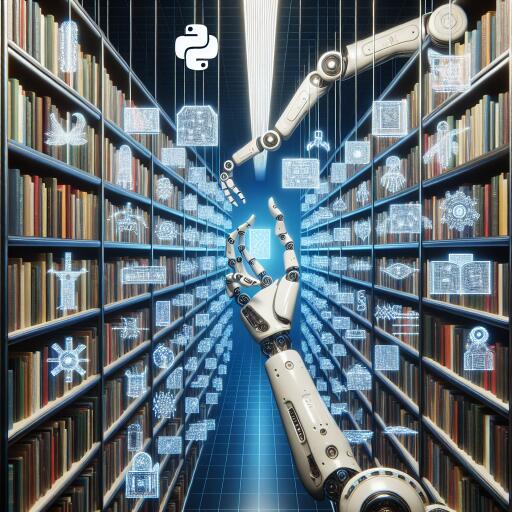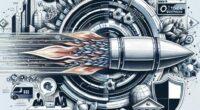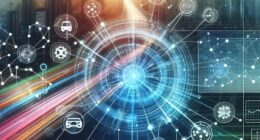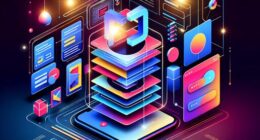Unleashing Efficiency with Python Libraries for Automation
In the vast and ever-expanding universe of programming, Python stands out for its simplicity and versatility, particularly in the realms of automation and efficiency. The language’s broad array of libraries simplifies task automation, data analysis, web scraping, and much more, thus empowering developers to boost productivity and unlock new potentials in their projects. This guide shines a light on some of the best Python libraries designed to streamline your workflow and supercharge your efficiency.
Data Handling with Pandas
Pandas is a cornerstone for anyone dealing with data manipulation and analysis. With its intuitive DataFrame structures, it makes tasks such as cleaning, filtering, and transforming data straightforward. For automation involving hefty datasets, the efficiency and ease of use that Pandas offers are unparalleled.
Web Automation via Selenium
For web automation tasks, Selenium is the go-to choice. It allows developers to programmatically control web browsers to automate a variety of tasks like web scraping, automated testing, and navigation. Its compatibility across different web browsers further enhances its utility for developers aiming to automate web-based workflows.
HTML and XML Parsing with Beautiful Soup
Beautiful Soup specializes in parsing HTML and XML documents, making it a powerful ally in web data extraction efforts. It’s incredibly useful for projects that need to scrape information from websites, thanks to its user-friendly syntax and flexibility.
Seamless HTTP Requests Handling
The Requests library provides a clean and simple way to send HTTP/1.1 requests. It’s indispensable for automating interactions with web services, from data retrieval and submission to dealing with authentication systems, making web API communication a breeze.
Numerical Computing with NumPy
NumPy enhances Python’s capabilities in numerical computing with its powerful array operations and comprehensive mathematical functions. It’s the foundation for automation projects that involve complex scientific calculations, data analyses, or simulations.
Machine Learning with TensorFlow and PyTorch
TensorFlow and PyTorch are pillars in the machine learning and artificial intelligence domains. TensorFlow’s deep learning frameworks enable sophisticated modeling for tasks like image recognition and natural language processing. PyTorch offers dynamic computing and an intuitive interface, making it ideal for cutting-edge AI research and applications.
Testing with Pytest
Pytest streamlines the testing process, ensuring code reliability and facilitating unit testing and integration testing processes. With its scalability and broad plugin ecosystem, Pytest is a valuable tool for maintaining code quality and integrity.
Machine Learning Automation with Scikit-learn
Scikit-learn simplifies the implementation of machine learning algorithms. With tools for data preprocessing, algorithm implementation, and model evaluation, Scikit-learn is essential for automating the machine learning workflows efficiently.
Data Visualization with Matplotlib
Data representation takes a graphical and interactive turn with Matplotlib. It’s the primary Python library for generating plots, histograms, power spectra, and more, allowing for intuitive and effective data presentation and analysis.
GUI Automation with Pywinauto
Pywinauto is a gem for automating graphical user interfaces, specifically for Windows applications. With its simple API, developers can easily automate repetitive tasks in desktop apps or undertake comprehensive UI testing.
Secure Connections with Paramiko
Paramiko enables secure file transfers and remote command execution via SSH, ensuring safe and encrypted communications. It’s especially useful for developers needing to automate tasks on remote servers.
The Expansive Python Library Ecosystem
The versatility and power of Python’s libraries make it an indispensable tool for developers aimed at automating a wide array of tasks. From data manipulation and web automation to machine learning and beyond, the Python ecosystem is ripe with libraries that not only simplify developers’ lives but also open up new possibilities for innovation and efficiency in projects.
As technology forges ahead, these libraries continue to evolve, providing stronger, more efficient tools to handle the complexities of modern automation challenges. Whether you’re a data scientist, web developer, or machine learning engineer, mastering these libraries will prepare you to navigate the diverse landscape of automation and push the boundaries of what’s possible in your projects.










